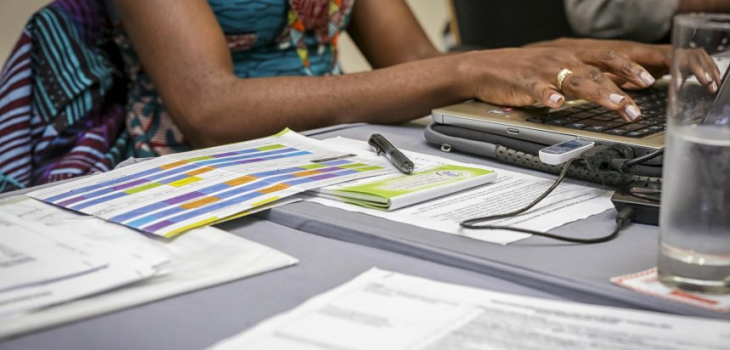By Sameera Hussain (Office of Strategic Policy and Planning, Public Health Agency of Canada) and Dena Javadi (Researcher/PhD student, Harvard TH Chan School of Public Health)
This supplement, a collaboration between Health Systems Global (HSG) and the Alliance for Health Policy and Systems Research (AHPSR), is the product of a six-month publication mentorship programme aimed at supporting early-career women conducting Health Policy and Systems Research (HPSR) in Low- and Middle- Income Countries (LMICs). The mentorship programme guided mentees – selected based on a motivation letter and draft abstract – in preparing a high-quality manuscript for a peer-reviewed journal. Topics for submission were restricted to themes identified for the Sixth Global Symposium on Health Systems Research on “Re-imagining health systems for better health and social justice.” A call for expressions of interest drew 252 applicants, with 20 papers submitted, and finally 9 selected for publication. The mentorship model worked well, with 22 mentors and mentees matched by their area of expertise.
It is well-documented that gender, race, ethnicity, socioeconomic status, and other combinations of social identities impede women’s progress in the health workforce and restrict access to corridors of power. Women’s progress in academic medicine and public health is often impeded by structural barriers and gendered institutions. Some of the key barriers include gendered stereotypes and bias, imbalanced family and care-taking roles, lack of mentorship, and poor organizational support. Institutions today have commenced practices for redress, implementing training in unconscious bias, career development support, childcare services, availability of culturally responsive mentorship, networking opportunities, and diversity practices in recruitment across their organizations. In academia, high-impact publications remain a benchmark of productivity, expertise, and success—hence the gender disparities we see in the publication output of early and mid-career women researchers, and particularly among women of underrepresented minorities, have a negative impact on equitable academic placement and promotions. An intersectional lens – accounting for interactions across gender, race, ethnicity, disability, and other social identities – is required to improve measures designed to empower those facing structural barriers.
HPSR is a dynamic field focused on addressing systemic barriers, enhancing social justice, and leaving no one behind. Therefore, all measures that diversify the field and amplify under-represented voices, can help to enrich its scholarship with new perspectives, approaches, and methods.
The papers that form this supplement span a wide range of equity-oriented topics affecting health system performance and outcomes. Topics include health workforce support, intimate partner violence, health sector corruption, implementation factors in service delivery, universal health coverage, and more. Countries represented include Kenya, Vietnam, Uganda, Ghana, Uganda, Ethiopia, Bangladesh, Nigeria, Brazil.
We invite you to engage with the findings across these papers:
- Editorial: Enhancing diversity in public health scholarship: the role of publication mentorship
- Supporting early-career mentorship for women in Health Policy and Systems Research: a vital input to building the field
- The magnitude of intimate partner violence during pregnancy in Eldoret, Kenya: exigency for policy action
- Intimate partner violence is associated with poorer maternal mental health and breastfeeding practices in Bangladesh
- Factors associated with the utilization of inactivated polio vaccine among children aged 12 to 23 months in Kalungu District, Uganda
- Perspectives and practices of healthcare providers and caregivers on healthcare-associated infections in the neonatal intensive care units of two hospitals in Ghana
- Predictors of nursing leadership in Uganda: a cross-sectional study
- Effectiveness of a nutrition education and counselling training package on antenatal care: a cluster randomized controlled trial in Addis Ababa
- Do social accountability approaches work? A review of the literature from selected low- and middle-income countries in the WHO South-East Asia region
- How ready is the system to deliver primary healthcare? Results of a primary health facility assessment in Enugu State, Nigeria
- Health reform and Indigenous health policy in Brazil: contexts, actors and discourses
Check out the podcast with two authors from this journal supplement here.











